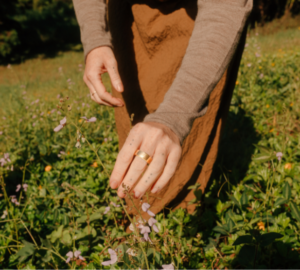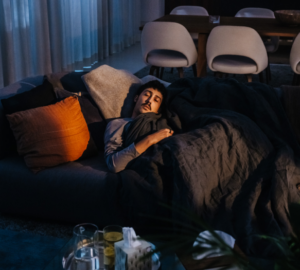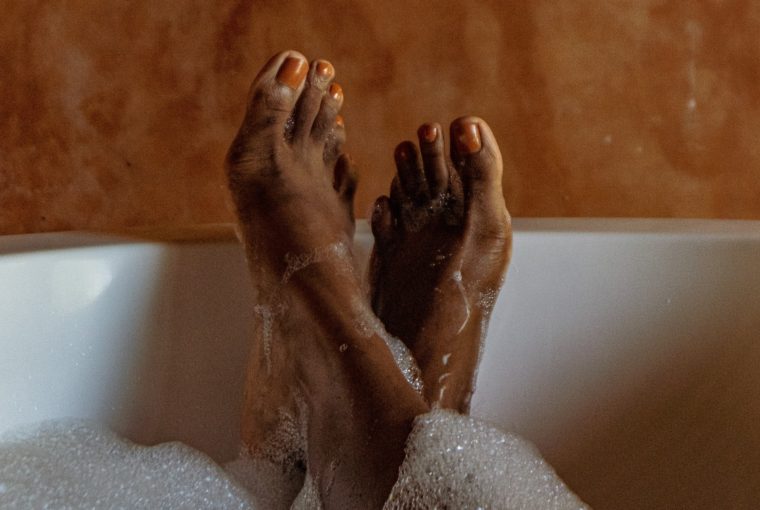By: Amy Capetta
If dozing off at bedtime and getting a good night’s sleep seems like a dream, you’re certainly not alone. According to the American Sleep Association, between 50 and 70 million American adults suffer from a sleep disorder, the most common being insomnia, which is defined as difficulty falling and/or staying asleep.
Now here’s the promising news: Soaking in a warm bath during your pre-bedtime routine could be an effective—and enjoyable—strategy to support better sleep. A clinical review and meta-analysis of 13 studies published in the journal Sleep Medical Reviews found an association between a warm bath or shower and improved sleep quality, sleep efficiency (the amount of time in bed you were actually asleep), and sleep onset latency (the time it takes to fall asleep). The reason: It can trigger a nightly process that involves body temperature.
Body Temperature and Sleep
Core body temperature is regulated by our circadian rhythm, the 24-hour internal cycle that controls sleep, says Michael J. Breus, Ph.D., also known as “The Sleep Doctor,” a clinical psychologist and both a Diplomate of the American Board of Sleep Medicine and a Fellow of The American Academy of Sleep Medicine. “Our temperature seems to rise until about 10:00pm each evening, and then it will start to fall, which is actually a signal to your pineal gland to produce melatonin—the key that starts the engine for sleep.”
Dr. Breus further explains that once we are fast asleep, our body temperature continues to drop about one-quarter of a degree centigrade until about 2:00am to 3:00am (based on a wake time of 6:00am to 7:00am). As our temperature starts to gradually rise again, melatonin production decreases, as well. “Then you will slowly begin to wake up as your body warms up.”
Body Temperature and Bath
Even though it may sound counterintuitive, soaking in a warm bath shortly before bedtime can accelerate this natural process, says Brandon Peters, M.D., FAASM, sleep physician at Virginia Mason Medical Center and author of Sleep Through Insomnia. “After taking a warm bath, the body temperature drops—and this cooling may help to promote an easier transition to sleep.”
The sleep researchers who conducted the clinical review discovered that their findings are consistent with the method of passive body heating, which involves increasing core body temperature followed by rapid cooling. “A warm bath offers a specific exterior heat for a particular period of time,” explains Dr. Breus. The effects are immediate both ways—your body’s core temperature is raised quickly and then cools quickly when you step out. “ So it’s an easy way to get the effect of melatonin production without extended body heat.”
Thankfully, a cold bath or shower will not encourage the cool-down process. “Rather than cooling off as the bath ends, the body could be expected to warm back up again,” states Dr. Peters.
Keep in mind that working out shortly before bedtime will cause a different—and undesirable—type of heating effect. “Beyond an increase in body temperature, exercise may also affect blood pressure and heart rate, as well as increase levels of certain hormones,” says Dr. Peters. He adds that exercise activates the sympathetic nervous system, triggering the fight or flight response. “Therefore, it should not be surprising that it would also promote wakefulness.”
The “Right” Evening Bath
A warm shower before bed can likely help prepare the body for sleep, though you may want to draw a bath instead, advises Dr. Breus. “Total immersion allows for a better body response.”
Both experts state that the ideal bath water temperature should be slightly over 100 degrees, with Dr. Peters adding that studies indicate water temperature between 104 and 108.5 degrees Fahrenheit have been shown to improve sleep quality. Also, consider submerging yourself in a bubble bath, says Dr. Breus. “Bubbles form a layer of insulation and keep the water hotter longer.”
As for the optimal time and duration of the bath, the participants studied in the clinical review reported falling asleep faster and having a more restful night of shut-eye after soaking in a 10-minute warm bath one to two hours before bedtime.





